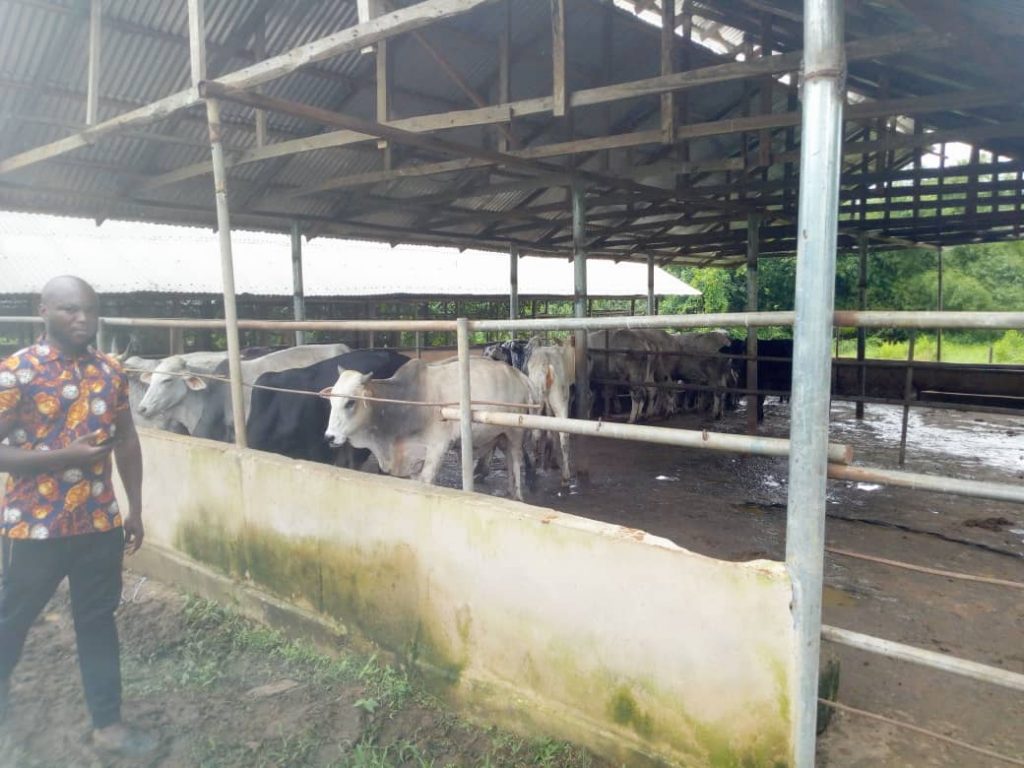By Uzor Maxim Uzoatu
The creature hit the internet with a huge hump recently. In no time at all, the image had gone viral. The phenomenon is “Anambra cattle” or “Efi-Igbo” – a new star has made its majestic appearance in the Nigerian firmament.
It was at a press conference in Lagos, addressed by Governor Willie Obiano of Anambra about three years ago that many journalists heard of the Efi-Igboinitiative for the first time. In blazing the unique trail, the governor did not mince words about the workability of the growth of the Efi-Igboproject.
The Obiano administration has since broken bold ground in this drive with the Efi-Igbo ranches of Eagle Farms Ltd, Umuchu in Aguata LGA and Wonder Farms, Umunze in Orumba South LGA. The administration, through the Anambra Small Business Agency (ASBA), grants facilities to dealers in Efi-Igbo, based on directives by the governor to develop the indigenous breed of cattle.
The ranching success is a major plank of reinvigorating sundry small businesses in Anambra State. With the synchronized government backing, the Efi-Igboindustry is poised to break into wider spheres such as the crossbreeding of Efi-Igbo and Fulani cattle. This upgrade will make Efi-Igbomuch bigger and, consequently, more competitive in the market.
According to the Anambra State Commissioner for Information and Public Enlightenment, C Don Adinuba, who said, quote: “I have been to a very huge farm in Adamawa State belonging to a former Chief of Naval Staff, Admiral Murtala Nyako who later became the Adamawa State governor. It has plenty of crossbred cattle. Cattle from Europe have plenty of milk but not as much flesh as cattle from Argentina. So, cattle from Argentina and Europe were crossbred to produce species with plenty of milk and plenty of flesh. You can call it the science of using one stone to kill two birds, or the art of having the better of the two worlds.” End of quote. Again, unlike the Fulani cattle, Efi-Igbo would not undertake the debilitating journey from the desert to the sea. Through the ranching, a healthier stock will be the result. Fulani cattle and Efi-Igbo will make for great progress in the celebration of Nigeria’s cherished diversity.
The Efi-Igbo project should aspire towards crossbreeding high-yield species that can adapt easily to local feeds. As a business, the Efi-Igboindustry should aspire towards a cost-benefit analysis of the species that would produce greater quantities and qualities of milk and meat.
Efi Igbo is highly productive. For instance, the Chairman of Eagle Farms, Prince Ugochukwu Okparaeke, said that he started his cow-breeding business with only two Igbo species. He started out about 18 years ago but has, over the years, bred more than 300 cows.
He had to introduce Fulani cattle along the line, and crossbreeding eventually followed. He had to take special cognizance of the fact that Efi-Igbo became strictly needed in many communities for cultural ceremonies such as burial and funeral rites.
Governor Obiano must be applauded for pushing for a revival of the breeding of Efi-Igbo in the state. Community leaders and traditional rulers must be committed to the project. They should resolve to revert to the local breed (Efi-Igbo) as the only acceptable species of cows for cultural rites.
The Efi-Igbo phenomenon, as a redoubtable alter ego to Fulani cattle, clearly showcases Governor Obiano as a farsighted leader who is highly imaginative and pragmatic. His reputation as a great promoter of his people’s culture cannot be gainsaid.




